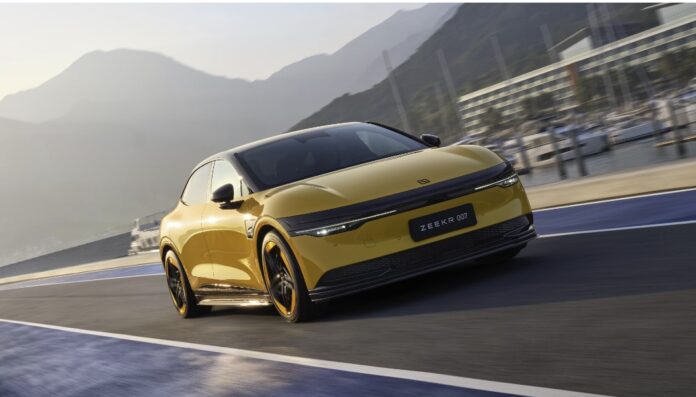Range and charging time are two factors that undermine the approval of electric cars. But the reality of 2024 is far different to that of 2020, than it might seem at first glance. Distance records have recently been broken, and now a full charge can cover the same distance (or more) than a tank of diesel.
Now, at least one electric car manufacturer claims to have developed a battery that can recharge from 10% to 80% in just 10 minutes. Zeekr, one of Geely’s electric brands, has just unveiled a new lithium-iron phosphate (LFP) battery that, they claim, when coupled with their new V3 charger, is capable of achieving these results.
These batteries will be available in the brand’s new 007 sedan, with deliveries starting next week in the countries where the brand has a presence: Sweden, Norway, Denmark, Belgium and Italy. The car is expected to arrive in the Spanish market in 2025.
The new battery is capable of achieving impressive performance even in adverse conditions: at 10 degrees below zero, a truly hostile environment for electric mobility, the recharging time is extended to 30 minutes.
The Geely Group owns other brands such as Volvo, Polestar, Lynk&Co, Lotus and Smart.
Last month, when the European Union’s provisional tariffs on Chinese electric vehicles came into force, the brand announced that it was considering producing in one of the group’s factories, thought to be one of the Volvo plants in Sweden.
The brand’s CEO, Andy An, said they were “actively seeking a production location, but a final announcement will be made in due course.”
EU tariffs have made it more expensive for electric vehicles manufactured in China to enter the country based on Xi Jinping’s government’s involvement in their operations, with them penalised by as much as 47%. Geely Group brands currently suffer a 30% penalty.
“I think these measures are detrimental to the environment and to the motoring industry,” An said. “They will have a significant impact on the brand’s international expansion.” In addition to Europe, Zeekr is also entering markets in the Middle East, Latin America and Southeast Asia in an effort to break even.
The company lost around 2.3 billion euros after its listing on the Nasdaq. In the first quarter of the year, Zeekr reported losses of around 250 million euros, 18% less than the previous year.





